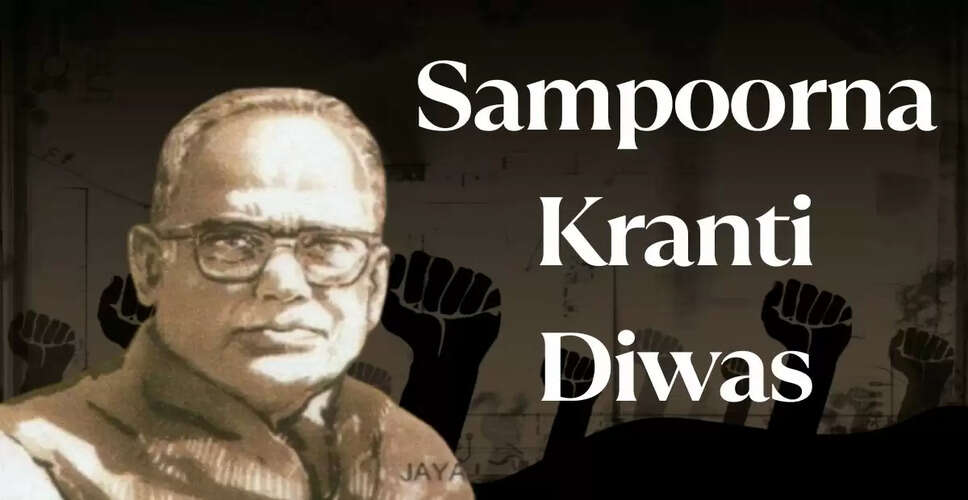Sampoorn Kranti Diwas: A Reflection on India's Total Revolution

Significance of Sampoorn Kranti Diwas
Every year, June 5 marks the celebration of Sampoorn Kranti Diwas in India, a day that holds great importance even today. This occasion commemorates the compelling call for a complete transformation of Indian society and governance, initiated by the esteemed leader Jayprakash Narayan in 1974.
Public Discontent in the 1970s
The early 1970s in India were marked by a tense atmosphere. Citizens were deeply frustrated due to rampant corruption, soaring prices, and a lack of job opportunities for the youth, leading to widespread unemployment. Many felt that the government was not genuinely addressing their concerns. In this context, student protests in Bihar emerged, spearheaded by JP Narayan, a devoted follower of Mahatma Gandhi's ideals.
JP Narayan's Vision for Change
On this significant day, JP delivered a landmark speech to a massive audience in Patna, outlining his vision of 'Sampoorn Kranti,' or total revolution. This vision was not merely a demand for governmental change but also a call to reform essential aspects of the nation. JP advocated for a political revolution to ensure fair elections and decentralize authority, a social revolution to eliminate caste and religious discrimination, and an economic revolution to address poverty and inequality. He also emphasized the need for a cultural revolution to enhance societal values, an intellectual revolution to promote critical thinking, an educational revolution to reform the schooling system, and a spiritual revolution for personal moral growth.
Enduring Legacy of the Movement
JP's inspiring words resonated with the audience, leading to a nationwide movement that saw significant participation, particularly from the youth. This powerful movement posed a direct challenge to Indira Gandhi's government. Its widespread impact contributed to the declaration of the Emergency on June 25, 1975, during which civil liberties were curtailed, and many opposition leaders, including JP, were imprisoned.
However, the foundation of the Total Revolution had been laid. Following the lifting of the Emergency in 1977, various opposition parties came together to form the Janata Party under JP's leadership, successfully defeating the Congress party. This marked a pivotal moment in India's political landscape.
Today, Sampoorn Kranti Diwas serves as a reminder of the power of public movements in a democracy and the ongoing need for essential changes in our society.
